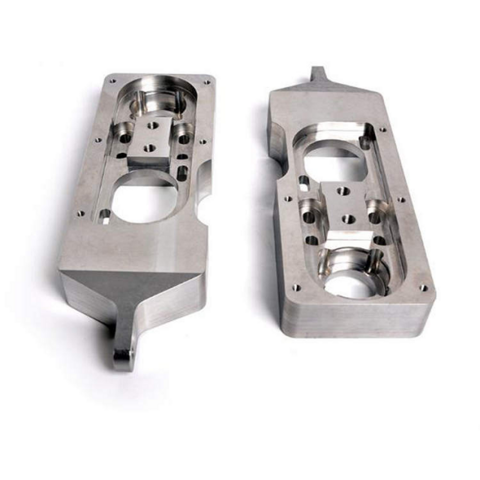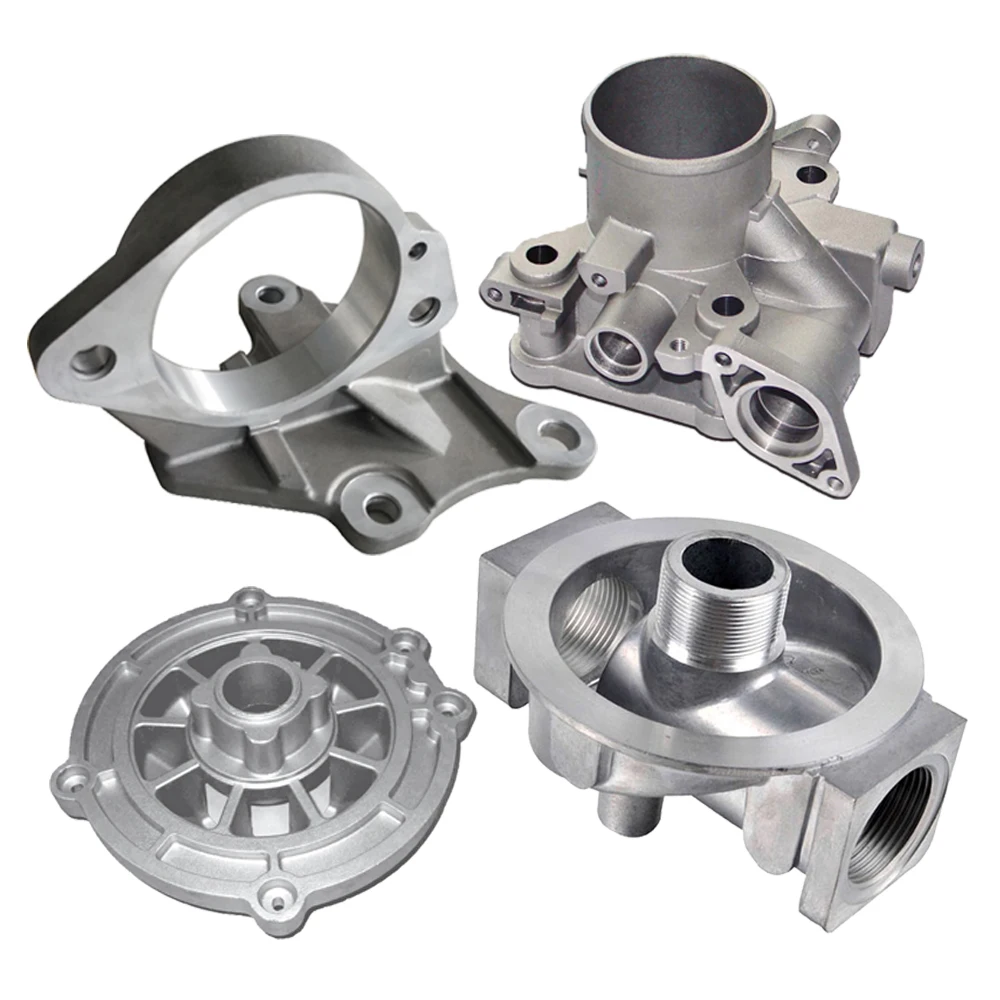Exactly How Light Weight Aluminum Spreading Adds To Reliable Production Solutions
Light weight aluminum spreading plays an essential function in contemporary manufacturing. Its light-weight nature and rust resistance make it a recommended option for various industries. Strategies such as die casting and sand spreading permit for the development of detailed get rid of minimal waste. The combination of automation additional enhances manufacturing performance. The ramifications of these innovations expand beyond plain efficiency - Aluminum Foundry. Understanding the more comprehensive impact exposes significant insights into the future of production
The Advantages of Aluminum in Production
Various steels are made use of in manufacturing, aluminum stands out due to its one-of-a-kind homes that enhance production performance and item performance. Its light-weight nature significantly reduces transport prices and power needs in numerous applications. Aluminum's outstanding corrosion resistance guarantees long life and sturdiness, lessening the demand for regular replacements and maintenance. This steel can be easily formed and formed, allowing for functional layout choices that satisfy details sector needs. Additionally, aluminum displays remarkable thermal and electrical conductivity, making it an optimal choice for applications needing reliable warm dissipation and electric monitoring. The recyclability of aluminum likewise plays an important duty in lasting production methods, as it can be recycled without losing its integral residential properties. On the whole, the advantages of light weight aluminum in making bring about set you back financial savings, boosted product long life, and a reduced environmental impact, making it a favored product in numerous industries.
Secret Aluminum Spreading Techniques
Aluminum casting strategies are crucial for generating high-grade elements in numerous making processes. The main techniques include sand casting, pass away casting, and investment casting. Sand casting includes creating a mold from sand, which enables intricate shapes and huge components. This strategy is usually favored for its cost-effectiveness and versatility. Die spreading, on the other hand, makes use of high-pressure to inject molten aluminum right into steel molds, causing exact, consistent parts ideal for high-volume production. Financial investment spreading supplies exceptional surface area finish and detailed detail by using a wax pattern that is thawed away to form the mold. Each of these strategies has particular applications and benefits, permitting producers to pick the most appropriate approach based on elements like manufacturing product, complexity, and quantity specs. By comprehending these essential techniques, suppliers can boost their production performance and assure the integrity of their aluminum parts.
Influence on Automotive Sector
As the automotive market increasingly focuses on lightweight materials to improve fuel effectiveness and performance, light weight aluminum casting has emerged as an essential solution. This manufacturing process enables car manufacturers to generate complex parts with decreased weight without endangering architectural integrity. By utilizing aluminum casting, makers can produce components such as engine blocks, transmission real estates, and suspension elements that are not only lighter however also display superb thermal conductivity and deterioration resistance.
In addition, the adaptability of aluminum spreading strategies makes it possible for the production of detailed designs, promoting technology in automobile visual appeals and capability. As cars become a lot more highly advanced, the ability to integrate attributes like sophisticated security systems and electric drivetrains ends up being important.

Aerospace Applications of Light Weight Aluminum Casting
Aluminum spreading plays a vital role in aerospace applications by making it possible for the manufacturing of lightweight structural components that boost gas efficiency. In addition, the accuracy of light weight aluminum spreading permits the development of complex engine components, which are crucial for peak efficiency and integrity. This mix of light-weight materials and precise engineering settings light weight aluminum casting as an important technology in the aerospace market.
Light-weight Architectural Parts
In the mission for improved performance and efficiency in aerospace applications, lightweight architectural components have become progressively vital. Aluminum casting plays an essential duty in this endeavor, offering manufacturers with the ability to produce components that are both solid and light-weight. The reduced density of light weight aluminum enables significant weight decreases without compromising structural honesty, which is critical for aircraft efficiency and gas performance. Additionally, aluminum castings can be crafted to satisfy certain layout demands, making it possible for the creation of complex geometries that typical production techniques may struggle to achieve. This flexibility not just improves manufacturing procedures yet also adds to overall cost financial savings. As the aerospace market remains to stress sustainability, the need for lightweight light weight aluminum elements is expected to climb, further advancing technology in production.
Precision Engine Components
Makers increasingly count on aluminum spreading to generate accuracy engine parts for aerospace applications, driven by the material's special properties. Light weight aluminum's light-weight nature significantly lowers check here total aircraft weight, enhancing gas effectiveness and efficiency. Its exceptional corrosion resistance warranties longevity in extreme settings, making it suitable for critical engine parts. In addition, light weight aluminum spreading enables limited resistances and intricate layouts, important for enhancing engine performance and integrity. The spreading procedure also supports automation, allowing makers to meet high demand while preserving quality requirements. As aerospace technology continues to advance, the function of aluminum casting in developing accuracy engine components will certainly be crucial in achieving higher effectiveness and advancement in aircraft layout and capability.
Sustainability and Ecological Benefits
The growing focus on sustainability in manufacturing has placed aluminum casting as a leading service for environmentally aware manufacturing. This procedure utilizes recycled aluminum, which considerably reduces energy usage compared to primary aluminum manufacturing. By leveraging scrap steel, makers can lower their carbon impact and minimize waste, straightening with international sustainability objectives.
Furthermore, aluminum casting produces less hazardous emissions, adding to a cleaner environment. The light-weight nature of light weight aluminum also improves gas effectiveness in transportation applications, even more promoting green practices.
In addition, the resilience and rust resistance of aluminum lead to longer item lifespans, minimizing the requirement for frequent substitutes and conserving sources. As sectors progressively prioritize sustainable options, aluminum casting stands out as a cutting-edge technique that not just meets production needs however also sustains ecological stewardship. This commitment to sustainability placements aluminum casting as an essential gamer in the shift in the direction of a greener production landscape.
Price Effectiveness in Manufacturing
Cost efficiency is a substantial benefit of light weight aluminum casting, matching its sustainability advantages - aluminum casting. The process of aluminum casting allows for the manufacturing of intricate forms with very little waste, which is specifically vital in an affordable production environment. Making use of aluminum reduces energy prices, as it has a lower melting point contrasted to other metals, causing decreased power intake during production
In addition, light weight aluminum's light-weight properties contribute to lower delivery and handling costs, further improving general price efficiency. The longevity and rust resistance of aluminum cast products additionally mean that they call for much less upkeep and substitute over time, causing long-lasting cost savings for makers.
Moreover, developments in casting innovations, such as improved mold and mildew styles and automation, have streamlined production processes, decreasing labor costs and increasing result performance. In general, price effectiveness in aluminum spreading plays a vital function in optimizing production operations and sustaining competitive pricing approaches.
Future Patterns in Light Weight Aluminum Casting
The future of aluminum spreading is increasingly formed by developments in automation and sustainable product innovations. Automation innovations are expected to enhance performance and precision in the casting process, while sustainable techniques aim to decrease environmental effect. With each other, these trends promise to redefine production criteria and techniques within the aluminum spreading industry.
Automation in Aluminum Spreading
Accepting automation is changing light weight aluminum casting procedures, leading the method for improved effectiveness and accuracy. Automated systems improve production by decreasing human intervention, decreasing mistakes, and boosting throughput. Technologies such as robotic arms and computer mathematical control (CNC) devices permit accurate and consistent shaping of light weight aluminum components. Furthermore, wise sensors monitor different specifications in genuine time, ensuring optimal conditions throughout the casting procedure. This assimilation of automation not only shortens preparations yet also improves item high quality by keeping tighter tolerances. As makers progressively take on these sophisticated innovations, the aluminum spreading market is set to experience considerable renovations in functional effectiveness, cost-effectiveness, and competitiveness in the global market.
Lasting Product Innovations

Frequently Asked Questions
What Types of Light Weight Aluminum Alloys Are Commonly Made Use Of in Casting?
Frequently made use of light weight aluminum alloys in casting include 356, 380, and 413. These alloys are preferred for their outstanding fluidness, toughness, and deterioration resistance, making them appropriate for a selection of commercial applications.
How Does Light Weight Aluminum Spreading Contrast to Other Metal Spreading Methods?
Aluminum casting generally provides lower weight, remarkable corrosion resistance, and much better thermal conductivity contrasted to various other steel casting approaches. Additionally, it enables intricate styles and faster production cycles, improving general manufacturing effectiveness and efficiency.
What Industries Advantage Most From Aluminum Casting?
The vehicle, aerospace, and electronics markets benefit most from aluminum spreading. These fields use its lightweight, corrosion-resistant buildings to improve efficiency, minimize gas consumption, and enhance total item performance, making light weight aluminum spreading increasingly crucial.
Are There Certain Style Limitations With Aluminum Casting?
Yes, light weight aluminum spreading has layout constraints, including constraints on wall surface thickness, complicated geometry challenges, and prospective concerns with accomplishing limited tolerances (Aluminum Foundry). These aspects can influence the total toughness and performance of the final product
How Is Quality Control Maintained in Aluminum Spreading Processes?
Quality control in aluminum spreading processes is kept with strenuous examinations, adherence to standard procedures, and using innovative technologies. Routine monitoring warranties dimensional precision, surface area integrity, and product uniformity throughout production, promoting overall reliability.
As the auto sector progressively prioritizes lightweight products to enhance fuel effectiveness and efficiency, light weight aluminum spreading has arised as a critical option. Light weight aluminum casting plays a crucial function in aerospace applications by making it possible for the production of light-weight architectural parts that improve gas effectiveness. Cost effectiveness is a substantial advantage of light weight aluminum spreading, complementing its sustainability benefits. Welcoming automation is changing aluminum casting processes, leading the method for improved performance and precision. Recycled light weight aluminum use has actually gotten grip, significantly decreasing energy intake compared to main light weight aluminum manufacturing.